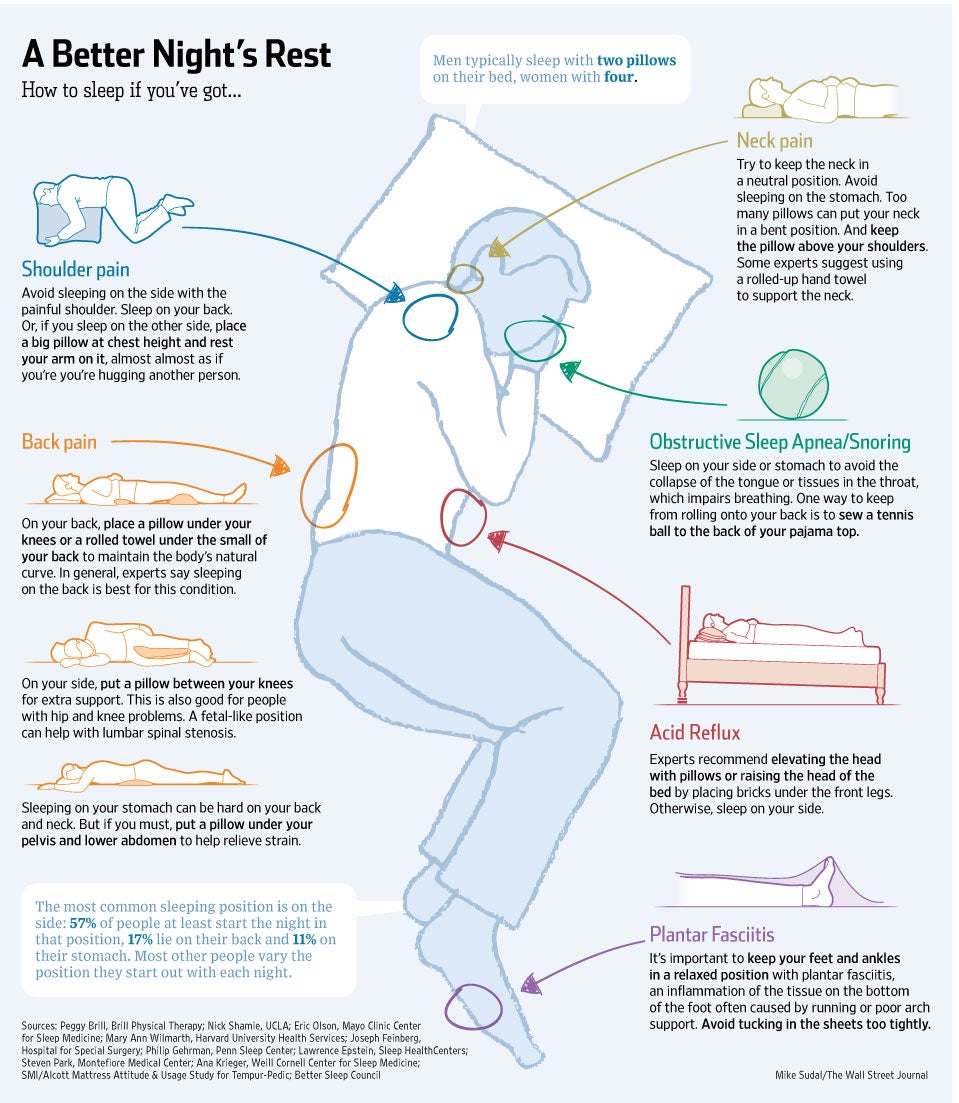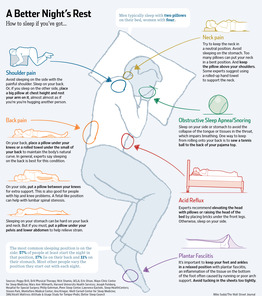Night_Hawk
Siasat.pk - Blogger
The Perfect Sleeping Positions to Fix Common Body Problems

Patrick Allan
The amount of sleep you get every night is important, but what's even more important is that the sleep you're getting is good sleep. If you have aches, pains, indigestion, or tend to snore, these are the positions that can help cure what ails you.

How to Get Better Sleep (and Need Less Every Night)
Many of us struggle to get enough sleep every night, but is the sleep we get any good? While…Read more
This helpful graphic from The Wall Street Journal points out some common trouble spots and how you can adjust the way you sleep to make sure you have sweet dreams. Back pain? Try a pillow between your knees. Acid Reflux or indigestion? Elevate your head with some more comfy pillows or a few bricks under your bed's legs. Don't waste your precious sleeping hours by forcing yourself to sleep uncomfortably. For more information on how your sleeping position can affect you, check out the complete Wall Street Journal article at the link below.
Find the Perfect Sleep Position | The Wall Street Journal via Best Infographics

http://lifehacker.com/the-perfect-sleeping-positions-to-fix-common-body-probl-1628559555

Patrick Allan
The amount of sleep you get every night is important, but what's even more important is that the sleep you're getting is good sleep. If you have aches, pains, indigestion, or tend to snore, these are the positions that can help cure what ails you.

How to Get Better Sleep (and Need Less Every Night)
Many of us struggle to get enough sleep every night, but is the sleep we get any good? While…Read more
This helpful graphic from The Wall Street Journal points out some common trouble spots and how you can adjust the way you sleep to make sure you have sweet dreams. Back pain? Try a pillow between your knees. Acid Reflux or indigestion? Elevate your head with some more comfy pillows or a few bricks under your bed's legs. Don't waste your precious sleeping hours by forcing yourself to sleep uncomfortably. For more information on how your sleeping position can affect you, check out the complete Wall Street Journal article at the link below.
Find the Perfect Sleep Position | The Wall Street Journal via Best Infographics

http://lifehacker.com/the-perfect-sleeping-positions-to-fix-common-body-probl-1628559555




























